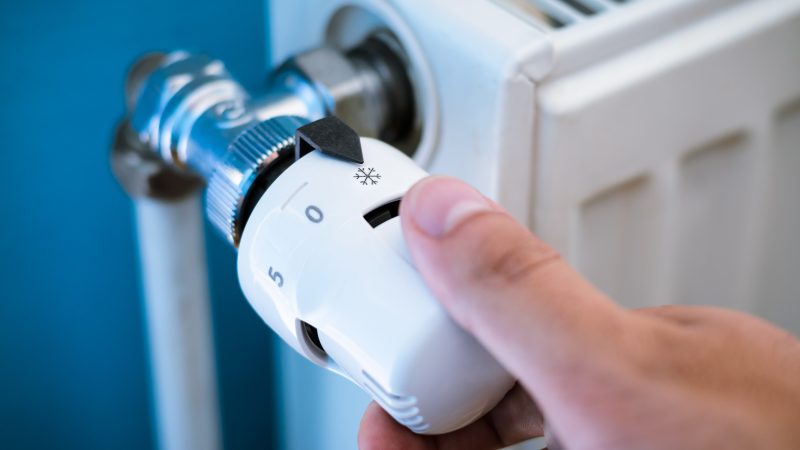
Liz Truss is our new Prime Minister, and she is under considerable pressure to set out a plan to support households with the worsening cost-of-living crisis. Having offered precious little for worried consumers during the leadership campaign – beyond tax cuts that would primarily benefit richer households – Truss will reportedly announce a plan to freeze energy bills in the coming days, potentially as early as Thursday.
With the energy price cap due to rise from £1,971 to £3,549 in October, action is desperately needed. Truss pledged to “deliver on the energy crisis” in her speech following the announcement of her victory in the Tory leadership race on Monday. But what is her plan expected to set out, and how does it compare to Labour’s own proposals to support households with the rising cost of energy?
What is the latest on Truss’ plan?
It is worth remembering that the exact details of Truss’ plan remain unknown, with an announcement potentially happening on Thursday, though the Daily Mail has suggested it may not come until the beginning of next week.
The Times has recently reported that Truss is expected to freeze energy bills at around £2,500, factoring in the £400 of support former Chancellor Rishi Sunak previously announced for all households. According to the paper, the plan could costs as much as £90bn.
BBC News reported this morning that the government looks set to freeze energy bills at their current level for approximately 18 months, funded by government-backed loans to energy suppliers, which would be repaid by additions to customer bills over the next ten to 20 years.
Bloomberg reported last night that Truss’ plan could cost as much as £130bn and would freeze bills at or below their current level. According to the news site, her proposal would see energy suppliers required to charge households a reduced rate for their energy, with the government guaranteeing financing to cover the shortfall. Bloomberg said that energy companies had been receptive to the idea, as it would mean that they would dodge a windfall tax, with the cost of the plan instead being covered by the taxpayer. Bloomberg has also reported that Truss is planning a separate £40bn support package to help businesses with rising energy bills.
Simon Clarke – a key Truss ally who is expected to be made Levelling Up Secretary in the reshuffle later today – said in an interview this morning that the support measures would be a “major moment” that would end “the sense of uncertainty” people were feeling. “It will come very shortly, and there is a clear commitment to rise to the level of events and to provide early certainty to families and businesses,” the current Chief Secretary to the Treasury declared.
Labour’s plan for energy bills
Labour announced last month that it would freeze gas and electricity prices immediately, keeping the energy price cap at its current level of £1,971 until April – a move it said would save the typical household £1,000.
Labour additionally confirmed plans to scrap energy premiums that customers using prepayments meters face, bringing the price cap for prepayment and standard credit customers in line with those paying by direct debit. Labour said it would ask Ofgem to assess how to make this a permanent change from April.
For businesses, the opposition proposed a £1bn fund to help energy-intensive industries with the higher cost of energy, along with an increase in the business rates threshold for small business rates relief, ahead of more fundamental reform to the system proposed by the party.
Labour said the overall cost of its proposals for households would be £28.9bn for six months and proposed to pay for this through a combination of changes to the windfall tax, halting the government’s proposed £400 support payments for households and lowering government interest payments on debt. It said the cost of the support package for business – estimated at £2.1bn – would be paid for through an increase in the rate of the digital services tax this year.
How do the two plans compare?
Truss dismissed Labour’s plan during the leadership campaign, likening it to a “sticking plaster” and stressing: “What’s not right is throwing money at the problem without dealing with the root cause.” The irony is that her plan could reportedly cost far more than that set out by Labour. Labour’s support package for households is estimated to cost £28.9bn for six months, significantly less per month than the potential £130bn cost of the 18-month package Truss may announce.
Worse still, Truss’ plan is expected to see the taxpayer lumbered with the cost of repaying the energy companies for the shortfall in their revenue. Labour has received criticism for proposing to subsidise energy companies rather than pursuing a more radical approach like public ownership. But under its plan, none of the cost would be passed on to consumer bills. The shortfall would be met through other means, including changes to the windfall tax on the huge profits of oil and gas companies, ensuring that those benefiting most from the current crisis contribute towards alleviating its impacts.
Imposing the costs on consumers would be yet another example of the Tories failing to respond sufficiently to the crisis and prove once again where the government’s priorities really lie. In a Prime Minister’s Questions session back in March, Keir Starmer declared that the government’s approach to energy companies meant that the Tories were “protecting energy profits, not working people”. Truss’ plan looks likely to be more of the same.




More from LabourList
‘What Batley and Spen taught me about standing up to divisive politics’
‘Security in the 21st century means more than just defence’
‘Better the devil you know’: what Gorton and Denton voters say about by-election